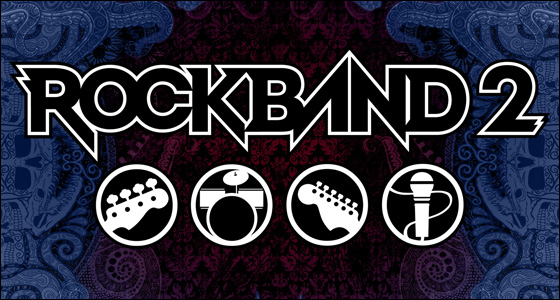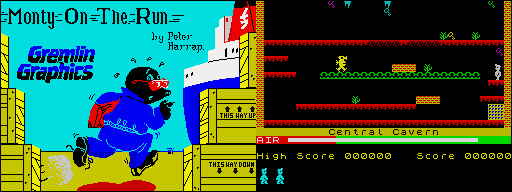UK Gaming Survey
October 29th, 2008

As part of my research into culture and games I knew that I’d need some help. There is no way that I can provide a legitimate case for the matter if I don’t provide more perspectives than just my own. Especially when dealing with something like culture. As such I’ve been calling upon the help of others to help substantiate this investigation (I make it sound so serious >_<). So to kick things off I want to take things slowly and explore the subtle nuances dividing the UK from other western countries. I’d like to thank Damon from the Consolation Prize blog and UK game marketer Bruce Everiss for their time in helping me along.
The point of this article is to warm you into the idea of differences among seemingly similar cultures. It’s an introduction of sorts thanks to the insightful responses which should act as a starting point for further analysis. I put a lot of thought into the questions, so I hope you get a lot out of it. ^_^
What do you think makes gaming in the UK different from gaming in other western countries like America or Australia?
Bruce Everiss
The USA definitely likes shooters more than Europe does. This is one of the reasons the Xbox 360 is doing a lot better in America than it is in Europe.
The Australians love localised games. At Codemasters we had the best selling game launch ever in Australia with V8 Supercars, based on their top car racing series. And Shane Warne Cricket was another great success for us there.
Damon
I think the main difference about gaming in the UK is the expected ill treatment at the hands of publishers and hardware companies. I’m speaking as a gamer now, and not as a marketing man, so I find it frustrating when the UK has traditionally had to cope with some seriously long delays before finally getting a game – sometimes a year or more later than America or Japan. It has improved with this generation of consoles but there are still some extreme cases like “Rock Band” which was only recently released in the UK but already we see that “Rock Band 2” is out in the States.
Hardware pricing is still an issue where we’re expected to pay far more to get our hands on state of the art kit. Historically I’ve always felt like the UK was a second (or third) class gaming country with the aforementioned problems, and due to the PAL hardware we’ve also had to put up with sub-par game conversions that ran slower and included horrendous letter-boxing compared to our NTSC cousins. Again this is something that has now more or less been remedied but we don’t forget lightly the sins of the past.

The UK has always had a respectable number of game developers, do you feel that games made in the UK have their own flavour to them? Should they? And is this important?
Bruce Everiss
The UK game heritage comes from the Sinclair Spectrum in the 1980s. There were many thousands of bedroom coders who experimented with everything to do with video gaming. This made the UK game industry very sophisticated well before any other country. It is why you will now find British development staff in most game development studios in the world. Which means that we exported our gaming knowledge and sophistication inside the brains of all the many development staff who emigrated.
Damon
Alas, I feel games which are still made in the UK nowadays are now more representative of a generic western games model and what publishers and development houses feel will actually sell in the big territories i.e. America. It’s a rare thing these days to find a game where you can instantly tell that it was made by a UK developer.
I feel that UK games have lost there identity, gone is the sarcastic wit, or the eccentric humour you’d expect to see. Even if an element of culture is represented it’s usually the extremes like the posh upper class English accent, or the overuse of cockney rhyming slang. The days where games like “Monty on the Run”, “Manic Miner”, or “Jet Set Willy” were produced to reflect political events in the UK are long gone. It’s a shame because any media whether it is video games, movies, or music, should still reflect the culture it comes from to some extent, and of those three mentioned only the latter two really succeed in this aspect.

What aspects of games do you think appeal more favourably to players from the UK?
Bruce Everiss
I think that the UK market is more mature in it’s game understanding. We have forums like rllmuk which don’t exist anywhere else. It is taken very seriously. So I think that a far wider range of genres are accepted here. And there is far less belief of marketing bullshit.
Damon
There seems be a blossoming casual market in the UK with games like “Brain Training”, “Wii Fit”, “Wii Play”, and other party games faring particularly well in the software charts. Apart from that racing games are always popular, and it goes without saying really that as soon as a football game (FIFA or Pro Evo) is released it will sell by the bucket load.
Lastly, PAL gamers often seem to draw the short straw when it comes to release dates, prices and general publisher attention. Why is this a mistake?
Bruce Everiss
This is easy to understand. USA and Japan are both NTSC (Never Twice Same Colour) and that is where most of the big publishers are. So they look after their own markets first. This is gradually changing as they start to realise that Europe is the biggest market in the world. Simultaneous global launches are becoming a lot more common as marketing departments become more professional, the advantages are huge.
Damon
I touched upon my frustrations earlier but in the specific sense of “why is it a mistake”: I’d have to say that if a something is delayed for too long then personally I’ll just forget about it, no matter how good it is, and move onto something new instead. I’ve probably missed out on quite a few excellent games because I just got fed up of waiting. I can imagine quite a few PAL gamers, unless they’re devoted followers of a franchise, adopt the same attitude.
I think UK gamers are now getting a bit more savvy with regards to pricing. Unfortunately it’s taken for granted that we’ll usually pay more and the result is that most consumers will wait until the price becomes reasonable before deciding to purchase. There’s also a large second hand market which a lot of gamers resort to, the profits of which will all go to the shop (GAME, Blockbuster, Gamestation) rather than the publishers and developers.



 Game Design Companion: A Critical Analysis of Wario Land 4 - $7.99
Game Design Companion: A Critical Analysis of Wario Land 4 - $7.99 Level Design: Processes and Experiences
Level Design: Processes and Experiences Speed Boost: The Hidden Secrets Behind Arcade Racing Design - $5.99
Speed Boost: The Hidden Secrets Behind Arcade Racing Design - $5.99 Adventures in Games Analysis: Volume I - $5.99
Adventures in Games Analysis: Volume I - $5.99







